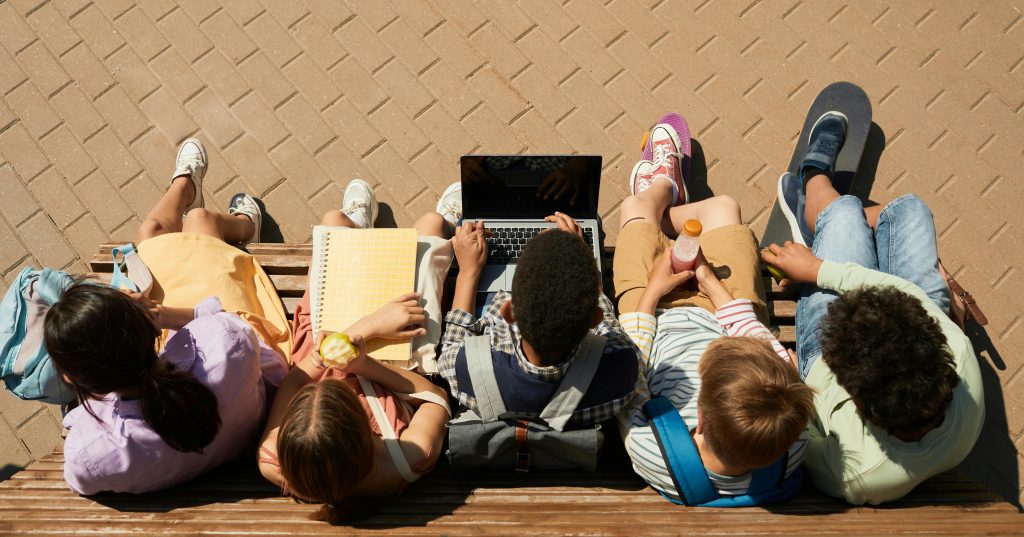In my last blog on ongoing digitalisation with respect to the radio, I asked myself whether one has the right to lead a life outside of the digital, at least to a certain extent, and hence whether societies should preserve analog spaces. As in the case of switching off FM broadcasting, some decisions might be irreversible. All the more, societies should discuss such questions before it is too late. Inevitably, our decisions have a great impact on our children. In this blog, I plead in favour of leaving room for future generations to decide themselves how they wish to relate to the digital world.

Naturally, we want our kids to thrive and to lead a happy and healthy life. Nowadays, this includes that they must be equipped with the right skills to get along with digital media and to find their position within digital society. Therefore, curricula should move with the times. With all the digital aids we have at our disposal now, and the many that are yet to come, one might wonder whether certain ‘classical’ skills are still essential: Is it still necessary to develop a proper handwriting? With having sophisticated calculators in our pockets, should we still care about mental arithmetic? And is learning foreign languages a waste of time?
I have certainly learned a lot at school that I will probably never need again in my life. However, and more importantly, I learned what it means to make an effort, to do tasks I don’t like at all, and to gain trust in my capabilities. Of course, in spite of all the digital helpers, students can still be challenged! Interacting with artificial intelligence can be tricky. AI might give terribly wrong answers because of a poorly worded prompt. And in order to assess whether a certain translation makes sense, it does no harm to have at least basic knowledge of a language. At the end of the day, I have a hunch that a lot of traditional, ‘analog’ skills are still necessary to use digital tools properly, to build one’s own ones, and to not trust them blindly.
Furthermore, we must not forget that the digital is only a tiny part of human history, and that, from an evolutionary perspective, our brains didn’t have enough time to adapt. This might be one of the reasons why there was a global decline in mental health during the pandemic. In fact, I think most of us feel that one can overdose consumption of digital media. And, while I do understand busy parents wanting to calm down their kids for a while, I am hopefully not the only one who is alarmed when toddlers, barely able to hold the device in their hands, are kept busy with their parents’ phone. I feel confirmed by the guidelines of the WHO recommending as little screen time as possible for children under the age of five (though they might be almost impossible to follow). Also, I have been following with interest Sweden’s initiative to reexamine the use of computers in schools and the phone bans from Dutch and French schools, which seem to work well.
For the record, I don’t think children should be denied access to digital media. It’s more about the right balance and I am convinced that this is achievable. Children should have a say in these discussions, but we must keep in mind that they have no comparison: children growing up now are the first generation where digital devices really are ubiquitous and it is no longer possible to not interact with them. While my generation and older ones still learned to solve problems with digital tools, the next and future generations might have to learn to solve problems without them. War, climate change and other catastrophes could lead to power shortages or internet breakdowns – with unimaginable consequences for communication, health care, food supply etc.
To conclude, being engaged in the digital world might also presuppose the ability to manage life without digital aids. This adds an extra layer of intricacies to our and our children’s lives. In my view, this implicates that we need redundancy in education: we should teach analog and digital skills. I find it very well conceivable that future generations become more critical about the digital world and that they will have to deal with downsides we don’t anticipate. Therefore, we should preserve (some) analog skills and means. This will prepare our children to make their own decisions and enable them to fix our mistakes.



Recent Comments